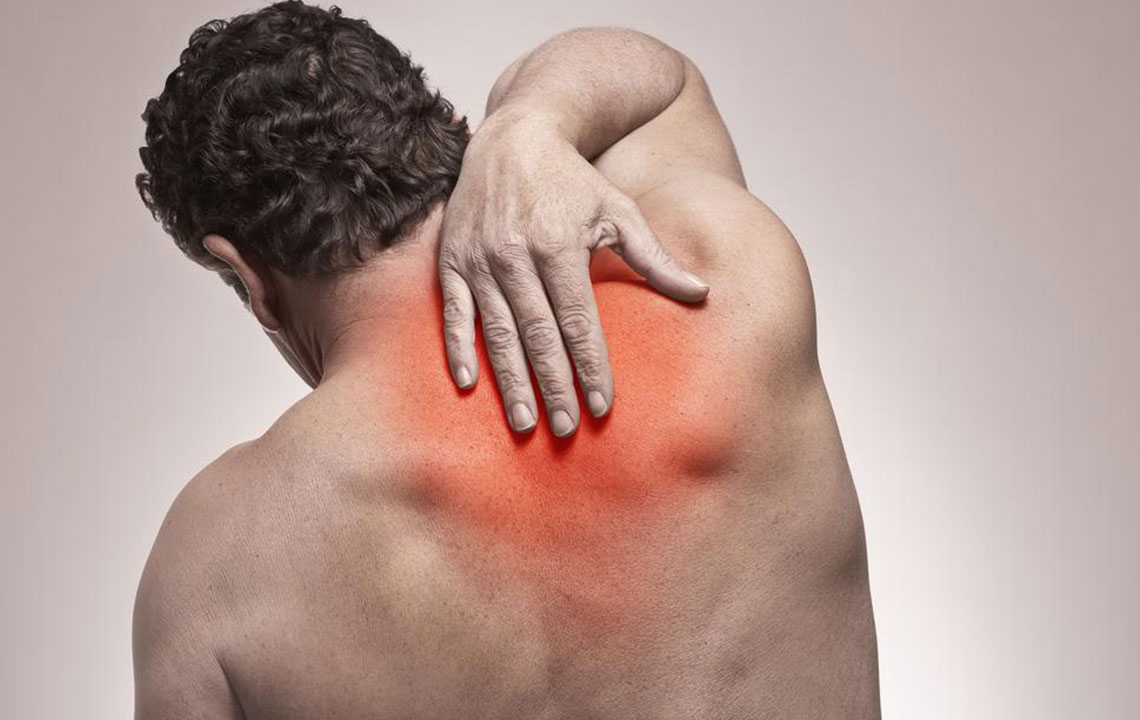The Problem of Neck and Shoulder Pain
The neck is a vital part of the human body that connects the head to the rest of the body (specifically the torso). It is the region where the brain is linked to the spinal cord there by supporting efficient functioning of the central nervous system.Since the neck is flexible and can move in all directions, it is often affected by pain. Also, undue exertion can cause neck disorders.
The shoulder, on the other hand, joins the arms to the torso and facilitates a great degree of movement.It consists of three bones that define the physical structure of the body.It enables motion in all directions and is therefore, more prone to injury and pain.

Usually, neck and shoulder pain, both occur simultaneously.It is not an uncommon phenomenon for those who participate in sports. Inappropriately performed exercises at the gym may also hurt the neck and the shoulder. X-rays, MRI tests and CT scans are used to diagnose the reason behind the pain.
Neck pain or cervicalgia–It can be triggered by the following causes:
- Spondylosis –Neck pain due to spondylosis is an ordinary ailment encountered by the elderly. Under this condition, the spinal column gets weak due to wear and tear that takes place in old age.
Shoulder pain –The following causes induce shoulder pain:
- Frozen shoulder –This is characterized by stiffness of the envelope around the shoulder joint. Inflammation can lead to chronic pain followed by reduced mobility.
- Fracture –Fractures are one of the most familiar causes of shoulder pain. A crack in any of the shoulder bones may emerge because of a particular injury resulting in acute pain.
- Lesions – At times, one or more tissues inside the shoulder may get torn. It is more common in individuals who regularly perform overhead activities or frequently uplift heavy weight objects.
- Arthritis – An individual suffering from rheumatoid arthritis has more chances of experiencing shoulder pain. It may also arise as a result of deterioration of cartilage in the shoulder.
- Dislocation –Whiplash and injury can cause the shoulder to dislocate from its socket resulting in severe pain. Movement of the arm becomes almost impossible and the shoulder can look deformed aesthetically.
- Tendinitis – It is marked by swelling of the tendons especially in the rotator cuff region. This results in the area around the shoulder becoming red as well as painful while also giving you a pinched nerve.
Further, the pain may get aggravated by prolonged periods of faulty posture, muscle spasms or deformities in the bones of the shoulder region. Having a family that has been consistently suffering from neck and shoulder pain enhances your prospects of inheriting the same.Moreover, stress is a frequent amplifier for both kinds of pain.
First aid given for a shoulder injury encompasses five steps namely Protection, Rest, Ice, Compression and Elevation. The first step is to safeguard the joint from further injury. The next step involves limiting the use of the joint as much as possible and providing adequate rest to it. Then, a cold or hot compress can be applied depending upon the cause of pain, though a cold one is recommended.Further, compression is done using bandages. As a final step, the injured part should be kept elevated until the doctor arrives.
Someone who has gone through these types of pain actually understands the importance of an effective treatment.In the case of neck pain, medicines such as acetaminophen and ibuprofen are generally prescribed. Certain creams and sprays can reduce swelling and provide comfort from pain. Physiotherapy with light exercises can further mitigate the impact.
Sometimes, pain may actually exist in some other part of the body but, is interpreted as emerging from the neck or shoulder.Therefore, it is of paramount importance ensure accurate diagnosis. It is extremely necessary to follow precautions so as to shelter yourself from the possible causes of neck and shoulder pain in the first place.

